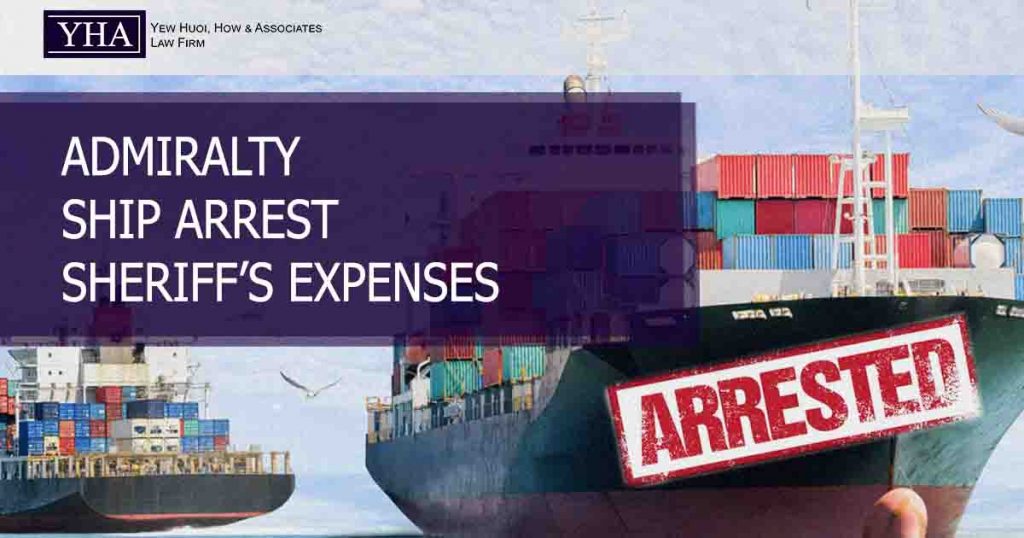What is Sheriff’s expenses when a vessel is arrested in an Admiralty In Rem Proceeding?
When a ship is arrested by court in an admiralty in rem proceeding, she will be placed under the custody of the Sheriff. The Sheriff is usually the Registrar of the High Court. When the ship is arrested, the Sheriff will incur costs and expenses to effect and maintain the arrest i.e. the ship. These expenses include payment of port dues, cost of engaging a sheriff’s agent, payment of food and supplies etc.
Are you saying the Registrar of the Court will pay for the Sheriff’s expenses?
No. Sheriff expenses will usually be advanced by the arresting party (i.e. the plaintiff) pursuant to an undertaking given to the court under O.70 r.9(3) of the Rules of Court 2021 (“ROC 2012”). The Sheriff’s expenses advanced by the arresting party may be claimed as the 2nd charge (after statutory claimants) from the proceeds of sale of the ship.
Sheriff’s expenses are ranked as one of the highest claims on the proceed of the sale of the ship. As such, arresting party (usually the plaintiff) and the owner (usually the defendant) must be mindful that prolonged arrest of a ship by the court would result in diminution of value of the ship by reason of mounting sheriff’s expenses. Owner should as soon as it is reasonably practicable post bail bonds to secure release of the vessel under arrest. If owner does not do that, the arresting party should quickly apply to court to have the vessel sold by the sheriff by way of judicial sale pendente lite.
The parties must be mindful that ship arrest is a very expensive process. It will be continuing until a sale pendente lite is ordered by the court or when there is a final disposal of the matter by the court.
There are many circumstances where the escalating Sheriff’s expenses have eroded the value of the ship. So much so that there is nothing left for the arresting party. It defeats the purpose of the arrest i.e. to arrest the ship as security for payment of the arresting party’s claim. It is advisable that valuation of the ship should be carried out before an arrest is made. The arresting party must also be mindful of the number of months a ship can be arrested before Sheriff’s expenses erode the value of the vessel so much that there is nothing left for the plaintiff’s claim. The Plaintiff must also be conscious that there could be other interveners’ claims which could be ranked higher than the Plaintiff’s claim. Consult a shipping expert before an arrest is made.

